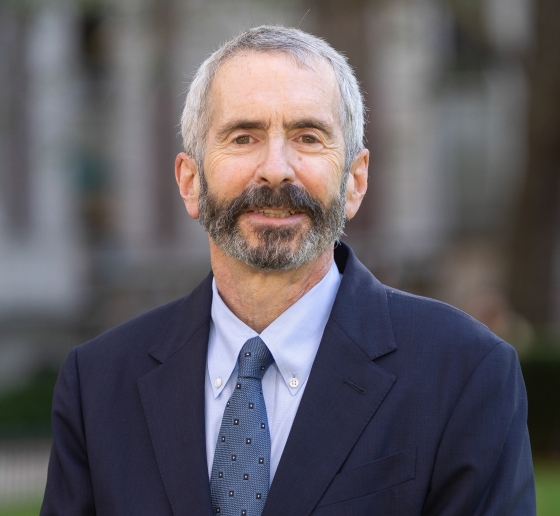Professor Richard Briffault’s Project on Principles of Government Ethics Law Approved by American Law Institute
The principles, approved by the ALI in May, are designed to provide guidance to public employees and elected officials, giving them the tools to develop or improve ethics rules.

Can a governor accept a pricey gift from someone who is seeking a contract with the state? Can a zoning board member vote on a variance that would directly affect the value of the board member’s property? Can a city commissioner leave office and immediately start lobbying the agency for which the commissioner formerly worked?
The answers—no, no, and no—are found in the American Law Institute (ALI) Principles of the Law, Government Ethics, a project led by Richard Briffault, Joseph P. Chamberlain Professor of Legislation, and approved by the ALI at its annual meeting on May 24. The guidelines are ALI’s first work on the subject.
The principles are intended to provide guidance for public employees and elected officials trying to institute more comprehensive ethics rules.
“Many states have relatively basic rules, and many local governments may not have rules at all,” says Briffault, who launched the project in 2009 and serves as chief reporter. “So although we are aiming at all levels of government, and we draw our principles from all levels of government, the take-up is most likely to be at the state and especially at the local level.” The associate reporter is Richard W. Painter of the University of Minnesota Law School.
Governments seek this guidance most often in the wake of an ethics scandal, says Briffault. “That’s the major trigger” for governments revising their rules—or making them in the first place, he says.
Briffault is a longtime leader in public ethics. From 2014 to 2020, he served as chair of the New York City Conflicts of Interest Board and was a member of the New York state Moreland Commission to Investigate Public Corruption. He sits on the advisory board of the Law School’s Max Berger ’71 Public Interest/Public Service Fellows Program.
The ALI Principles of Law are aimed at both the legislative and executive branches. The government ethics principles project is “proactive and designed to help people who have not yet written rules on this—or only have a more basic set of rules—to come up with rules or come up with better rules,” Briffault says.
Judicial ethics were not included in the government ethics principles “because of the distinct concerns and institutional structure of the judiciary,” a decision that Briffault made early on. That turned out to be controversial at the ALI annual meeting in May, when the principles were approved; the timing coincided with public debate over the lack of ethics rules enforcement for U.S. Supreme Court justices.
Explaining the decision, which was ratified at the ALI annual meeting, Briffault says that “judges present discrete issues, less in the substantive rules—which are going to be pretty similar and, if anything, should be tougher—and more in the enforcement. In oversight, administration, and enforcement, judges present special rules.”
Between Commandments and Codes
Chapters in the government ethics principles cover gifts and financial relationships, conflicts of interest and outside activities, election-related activities, and the “revolving door” of public and private employment. A final chapter covers administration and enforcement. Principles regarding disclosure merited its own chapter because while it is “crucial” to administration and enforcement, disclosure is also “a principle of government transparency,” Briffault says.
A challenge in writing the principles, Briffault says, was getting an appropriate balance between “general principles that say something” and guidance on how to turn those commandments into operable rules without trying to write a government- or agency-specific ethics code. “Every government is going to want to write its own code,” Briffault says.
“A commandment is, thou shalt not use public office for private gain. What does that mean?” he continues. “So we talk about not using the resources of your office and what those kinds of resources might be. You shouldn’t use your position to get something that you’re not entitled to, like special treatment. You shouldn’t use your position to get special treatment for your family. You shouldn’t accept gifts.”
If adapted into codes by state and local legislatures, the ALI principles could work to mitigate what Briffault describes as widespread public “mistrust” of government.
Prosecutions for straightforward corruption—the cash-stuffed envelope under the table—occur, but “the bigger issue for the public is a sense of systemic corruption,” he says.
“The sense of the influence of money, the influence of connections, the influence of favoritism. That’s where there’s a place for stronger ethics rules to limit the ability of government officials to do things that are not due to outright bribes, not outright theft of government resources, but that are adjacent and that are just as troubling to the public.”
